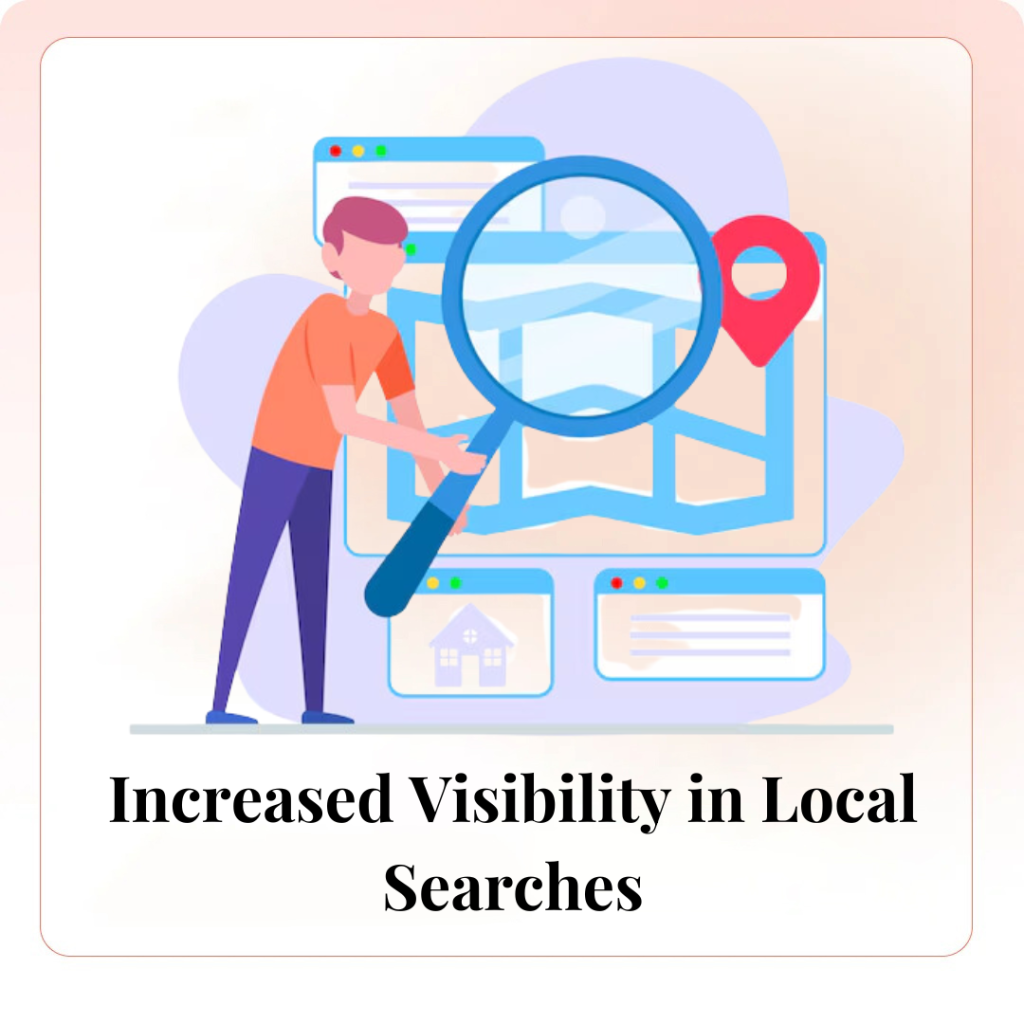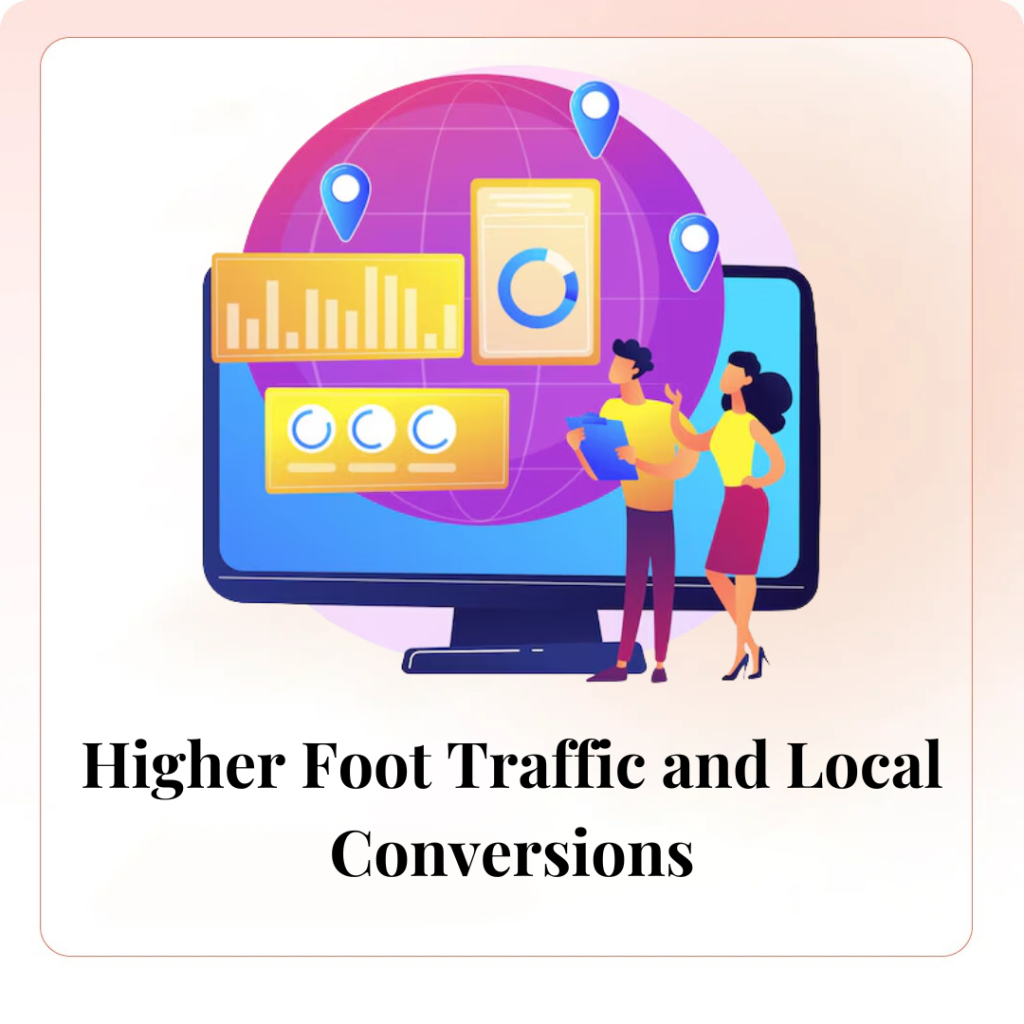In today’s digital era, consumers heavily rely on search engines to find local businesses. Whether it’s searching for a nearby restaurant, gym, salon, or repair service, potential customers turn to Google and other search engines to make informed decisions. With competition growing in every industry, businesses that fail to optimize their online presence for local searches risk losing valuable leads and sales. This is where Local SEO (Search Engine Optimization) plays a crucial role.
Local SEO is a specialized digital marketing strategy that helps businesses rank higher in location-based search results. It ensures that when someone searches for services in a specific area, your business appears at the top of search engine results, especially in the Google Local Pack. This not only increases visibility but also improves credibility and trust. Unlike traditional SEO, which focuses on ranking on a global or national level, local SEO prioritizes searches with geo-targeted intent, meaning that businesses can attract customers who are nearby and ready to take action.Even the best companies may find it difficult to acquire online momentum in the absence of a successful local SEO plan.
What is Local SEO?
Local SEO is the process of optimizing a business’s online presence to attract customers from specific geographic locations. It involves a combination of on-page SEO, Google Business Profile optimization, local link building, citation management, and customer review strategies. Unlike standard SEO, which aims to rank websites for broad search queries, local SEO ensures that businesses show up for location-based searches, such as:
✔ “best coffee shop near me”
✔ “car repair service in [city]”
✔ “top-rated hair salon in [neighborhood]”
Local SEO works by helping search engines understand where a business is located and what products or services it offers. This increases the chances of appearing in Google’s Local Pack, Google Maps results, and organic search listings.
By optimizing for local SEO, businesses can target customers who are actively looking for their services in real-time, increasing the likelihood of conversions. Since local searches often lead to immediate action, businesses that rank high in local search results tend to experience higher engagement and foot traffic.
Why is Local SEO Important for Location-Based Businesses?
1. Increased Visibility in Local Searches
Increased exposure in location-based searches is one of the main benefits of local SEO. Google gives preference to companies with effective local SEO techniques when users look for services in their area. This implies that companies are more likely to rank highly in search results if they have a consistent business description, a well-maintained Google Business Profile (GBP), and good local citations.
The goal of search engines is to present users with the most pertinent and nearby companies. More prospective clients will find and select your services if your company appears highly in local search results. Businesses can outperform those that are not optimized for local searches by showing up in Google’s Local Pack, which consists of the first three business listings that show up in search results.

2. Higher Foot Traffic and Local Conversions

In addition to improving online presence, local SEO also increases offline visitors. According to studies, 28% of local searches on mobile devices end in a purchase, and 76% of customers who perform such searches visit a linked company within 24 hours. This indicates that prospective clients are actively seeking your services when they come across your company in local search results.
Having a high local search ranking increases the number of customers that visit physical stores. Whether you own a restaurant, retail store, or medical office, making sure your website is optimized for local search engine optimization (SEO) makes it easy for visitors to identify your location, check your hours, and find your company. This boosts conversion rates and brings in more walk-in clients.
3. Builds Trust and Credibility with Customers
Businesses that rank well in search engine results are more likely to be trusted by customers. Accurate information, excellent photos, and satisfied clients make up a well-optimized Google Business Profile, which builds trust and persuades potential clients to pick your offerings over those of rivals.
Reviews are important for establishing credibility. Businesses show search engines and prospective clients that they are involved, dependable, and dedicated to providing exceptional customer service when they actively gather and reply to customer evaluations. Maintaining a positive and reliable reputation for your company is ensured by a robust local SEO strategy.

4. Cost-Effective Marketing Strategy

Local SEO is a more affordable marketing tactic with longer-term advantages than conventional advertising techniques like print advertisements, billboards, or TV commercials. After being appropriately optimized, a company’s website, Google Business Profile, and online listings continue to generate organic traffic without incurring any more expenses.
Local SEO produces long-lasting effects, in contrast to paid advertising, which needs ongoing investment to stay visible. Businesses may spend money on Google Ads to get visibility right away, but if they combine paid advertising with effective local SEO, they can succeed in the long run without depending entirely on paid channels.
5. Competitive Advantage Over Local Competitors
For companies trying to differentiate themselves from the competition, local SEO is crucial. You run the risk of losing potential clients to rivals if your company has a strong local SEO presence. Businesses may outperform rivals, increase exposure, and rank better in search results by putting into practice efficient local SEO techniques.
By concentrating on local SEO, even tiny companies may compete with larger ones. For local searches, a well-optimized local firm might score higher than national brands since Google prioritizes proximity and relevancy in search results. This gives local small and medium-sized enterprises the chance to draw in additional clients.

Key Local SEO Strategies for Location-Based Businesses
Google Business Profile (GBP) is a critical component of local SEO. It helps businesses appear in Google Maps and local search results, providing essential details like:
✔ Business Name, Address, and Phone Number (NAP)
✔ Operating Hours and Services
✔ Customer Reviews and Ratings
✔ Photos and Videos of the Business
How to optimize your GBP:
- Ensure all business information is accurate and up-to-date.
- Add high-quality images showcasing your products, services, and location.
- Encourage satisfied customers to leave positive reviews.
- Use relevant keywords in your business description and services section.
2. Target Local Keywords in Your Content
Using location-based keywords in your website content helps improve rankings in local search results. These keywords should be naturally integrated into:
✔ Website Titles and Meta Descriptions
✔ Service Pages and Blog Content
✔ Header Tags and Image Alt Text
Examples of local keywords:
- “Best coffee shop in [City Name]”
- “Affordable plumbing services in [Neighborhood]”
- “Top-rated hair salon near [Landmark]”
Creating locally relevant blog content (e.g., “10 Best Places to Eat in [City]”) can also help attract local traffic.
3. Ensure Consistent NAP (Name, Address, Phone Number) Across Platforms
Consistency in business information is essential for local SEO success. Your business’s Name, Address, and Phone Number (NAP) should be:
✔ The same across your website, Google Business Profile, social media, and business directories.
✔ Updated immediately if any changes occur.
✔ Free from spelling errors or formatting inconsistencies.
Search engines prioritize businesses with consistent information, as it improves trustworthiness and accuracy.
4. Get More Customer Reviews and Ratings
Customer reviews play a crucial role in local search rankings. Businesses with higher ratings and more positive reviews often appear at the top of local search results.
How to get more reviews:
- Politely ask satisfied customers to leave feedback on Google and other review sites.
- Respond to all reviews, whether positive or negative, to show engagement.
- Offer excellent customer service to encourage organic, high-quality reviews.
More positive reviews enhance credibility, attract more customers, and improve rankings.
5. Optimize for Mobile Search
Most local searches happen on mobile devices, so ensuring your website is mobile-friendly is essential.
✔ Use a responsive website design that adapts to different screen sizes.
✔ Improve page loading speed to prevent visitors from leaving.
✔ Make contact details easily clickable for instant calls or navigation.
A well-optimized mobile experience ensures higher engagement and better local search rankings.
6. Leverage Local Business Directories and Citations
Listing your business in reputable online directories boosts local SEO rankings and credibility.
✔ Submit your business to Google Maps, Yelp, Bing Places, Yellow Pages, TripAdvisor, and local chamber of commerce websites.
✔ Ensure your NAP details are accurate and consistent across all listings.
✔ Select the correct business categories and provide detailed descriptions.
These citations help increase your business’s authority and trustworthiness, improving its chances of ranking higher in local searches.
Conclusion
For location-based businesses, local SEO is revolutionary because it helps them become more visible, draw clients, and increase sales in their target markets. You can improve your local search rankings and keep ahead of the competition by making sure your website is mobile-friendly, monitoring online reviews, employing local keywords, and optimizing your Google Business Profile.
Ignoring local SEO means losing out on important clients as more people turn to Google and smartphone searches to locate nearby companies. To improve your local visibility and increase company traffic, start optimizing now! 🚀

